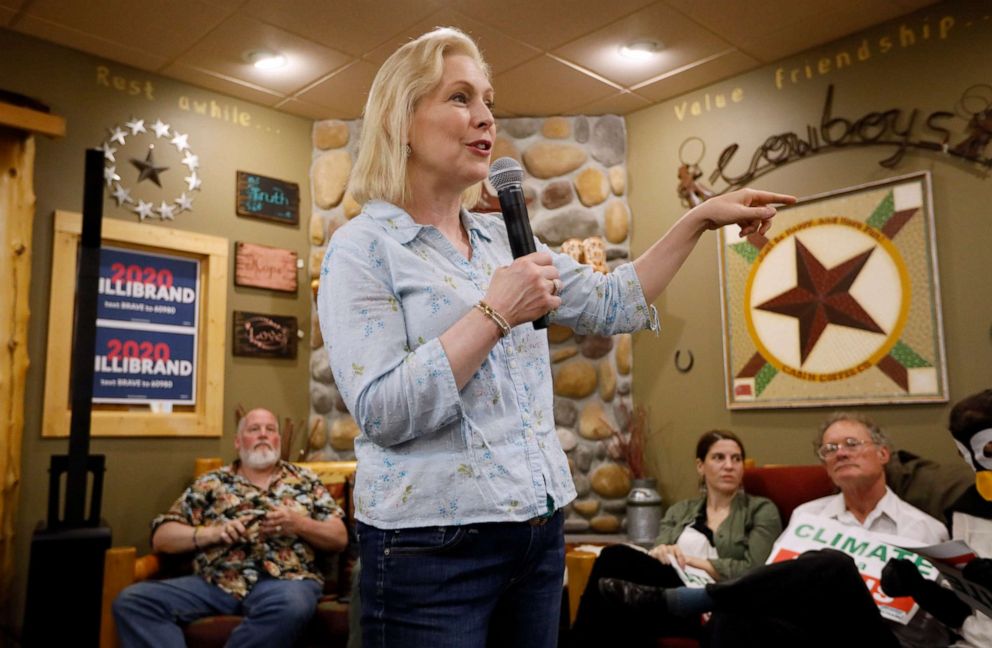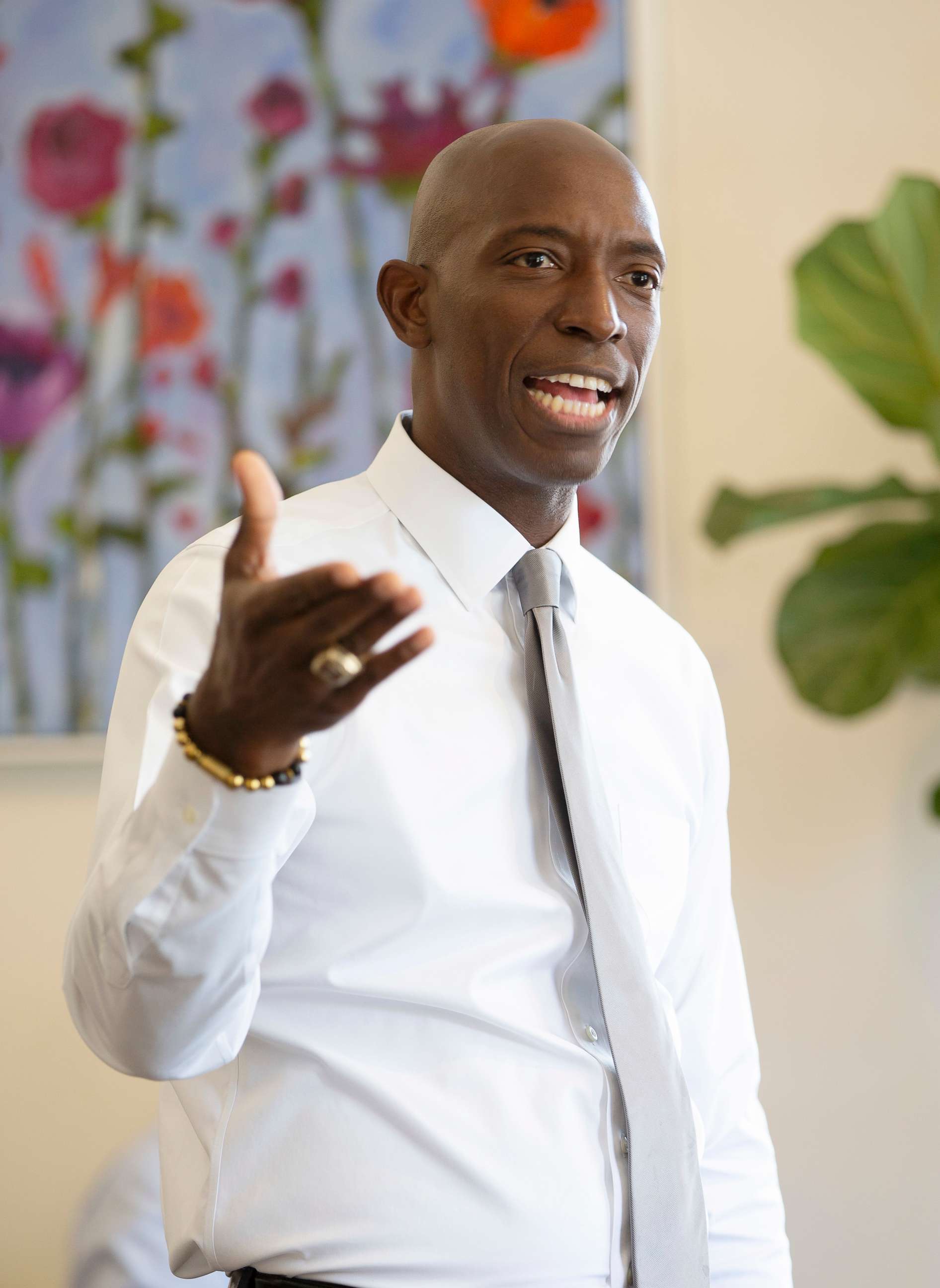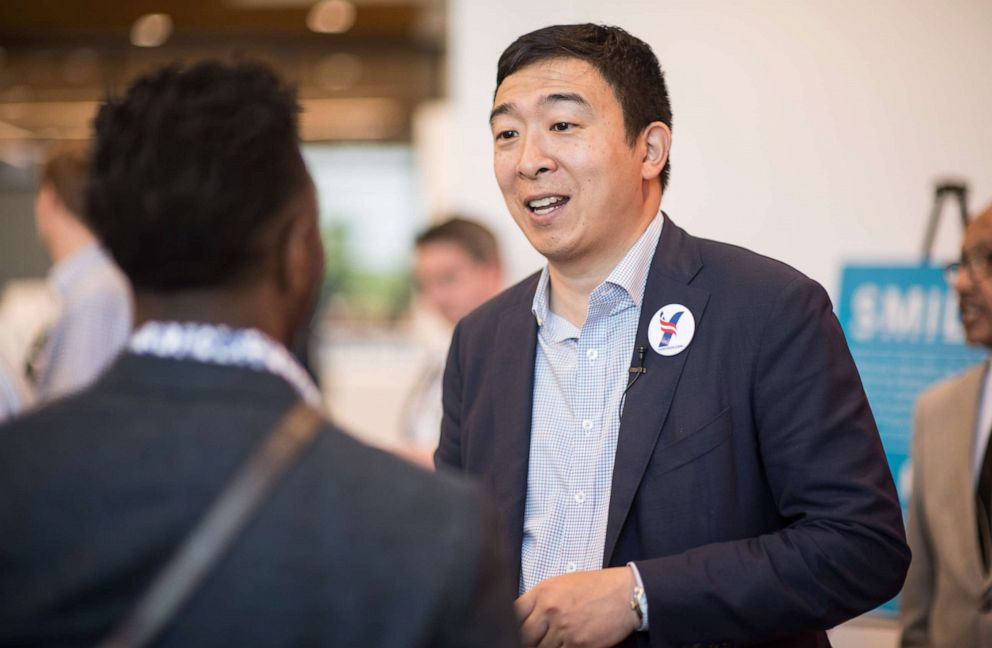FEC law on campaign funds transfers could help some, hurts others in presidential bids
Initial funding can be essential to building grassroots support, experts say.
Current federal campaign finance law might advantage some federal officeholders in the 2020 Democratic primary who, unlike their state and local office holder counterparts, can directly transfer funds from their Senate or congressional campaign committee to their presidential campaign committee.
Based on first quarter financial reports from the Federal Election Commission, candidates such as Massachusetts Sen. Elizabeth Warren and New York Sen. Kirsten Gillibrand transferred $10.4 million and $9.7 million respectively from their previous senate campaign committee to their presidential campaign committee. On the other hand, candidates such as South Bend, Indiana, Mayor Pete Buttigieg, Washington Gov. Jay Inslee, and Colorado Gov. John Hickenlooper transferred no funds from such previous campaign committees. In fact, they were not legally allowed to simply roll funds over.

Presidential hopeful and mayor of Miramar, Florida, Wayne Messam said he had leftover money from his mayoral campaign but was not able to use it due to the FEC guidelines. He said this presented a disadvantage.
"Well, obviously it’s a disadvantage. It shows how the system because it's actually stacked to favor Washingtonians who have federal laws and the ability to transfer their other congressional accounts to a presidential campaign," Messam said in an interview with ABC News. "So it definitely puts individuals who are coming from, let's say from various state or local governments at a very significant disadvantage."

Lisa Gilbert, the vice president of legislative affairs from Public Citizen, a progressive consumer rights advocacy group, said that federal officeholders who transfer funds can especially benefit in the initial phase of their campaign when many candidates are working to build a financial base.
"Yeah, I mean, there’s no question that it’s helpful if you are someone who had a large campaign fund from a previous race, if you’re able to use it for your current one, that’s something that can sort of take the edge off the initial need to accrue funds," she said.
Initial funding can be essential to building grassroots support, said Sheila Krumholz, the executive director of the Center for Responsive Politics, a nonpartisan research group which tracks lobbying and political contributions.
"Early money is like yeast, and that money in the bank provides an ability to quickly, out of the gate, reach out to people and hire the help they need and get the online messaging information they need out in a quality way that will juice their early support," Krumholz told ABC News.
The explanation for such guidelines is that state and local regulations and limits can substantially vary from federal guidelines which are consistent for all federal offices.
"Every penny that a federal officeholder has in their campaign account from their last federal election was raised under federal contribution limits and restrictions. And that’s not true of someone who’s running for state or local office," said Paul Ryan, the vice president for policy and litigation at Common Cause, a nonpartisan government watchdog group.
"Many states and many municipalities have much higher contribution limits and much less regulation of candidate fundraising, so I think it would be unfair to other candidates in the race if you were allowed to use money raised under no restrictions," he told ABC News.
FEC guidelines do allow state and local office holders to refund leftover funds from their nonfederal committee to respective contributors and to ask them to contribute again to their federal committee. This process, however, can pose a barrier.
"It’s much less attractive to go back to donors who’ve already given to your state level account and ask if you can refund their donation and have it re-submitted as a donation to a federal campaign," said Krumholz. "That’s a lot of work and, you know, may not enjoy a high response rate. But it is at least a way to try to ameliorate the problem."
When asked whether FEC guidelines should be revised to not allow for money to be transferred from any committee to the presidential committee, Gilbert told ABC News, "I think that would be the fairest way to go about it. The most level playing field would be to say you start fresh as a presidential candidate."
Similarly, Messam added, "I definitely think spirit should be to put everyone on the same playing field or the same level of access to financing campaigns."
Galia Slayen, Montana Gov. Steve Bullock’s campaign spokeswoman, referenced the need for greater regulation and disclosure of campaign funds and wrote in a statement to ABC News that "All candidates should follow the letter and the spirit of the law."

Presidential candidate Andrew Yang’s press secretary, Randy Jones, cited how political outsiders such as Yang do not possess a network of wealthy donors or hefty prior federal funds.
"Andrew Yang is not a career politician and does not benefit from a stable of big money donors or a federal campaign war chest, but the people are clearly pushing back against that kind of candidate," Jones said in a written statement to ABC News
The ability to transfer funds from authorized committees, however, has no bearing on a candidate’s ability to qualify for the first two debates under this year’s DNC guidelines which require a candidate to acquire 65,000 unique donors or poll at least 1% in three authorized polls.
Aaron Scherb, the director of legislative affairs at Common Cause shared how the grassroots fundraising criteria can incentivize candidates to seek individual small dollar donors.
"Having one raise $10 million from 500,000 voters is obviously a lot more significant and more meaningful than raising $10 million from, let’s say, 10,000 donors. So I think the fact that there’s the 65,000 donor threshold is a great kind of baseline of support to show viability," he said.
ABC reached out to all Democratic presidential campaigns, but others did not respond to repeated requests for comment.